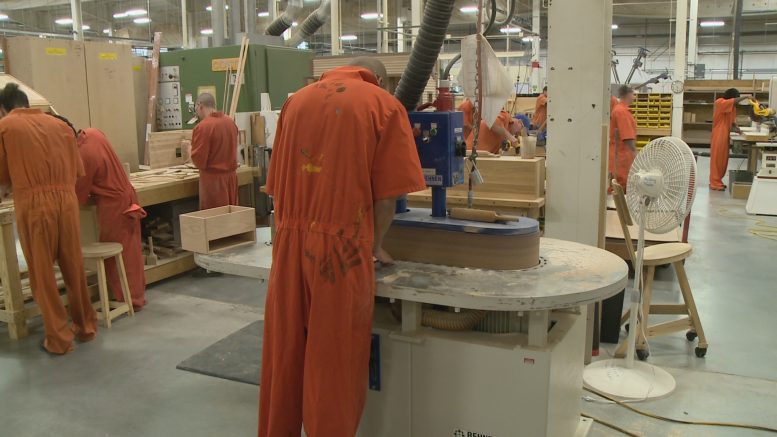
The Late Merle Haggard
“I’d like to hold my head up and be proud of who I am, but they won’t let my secret go untold. I paid the debt I owed them, but they’re still not satisfied, now I’m a branded man out in the cold.”
Before hitting the big time in Nashville, Merle Haggard famously spent time in San Quentin before regaling his audiences with the struggles of those leaving prison to the gentler streets of daily life.
Now, imagine leaving prison without his ability to write a song or play the guitar. Imagine you’re just one of the many hoping to find a job and melt into the morning crowds hustling to work each day.
In South Carolina, we’ve been more forgiving of those who’ve made mistakes and see a lower rate of folks returning to a life behind bars than the national average.
In fact, “the national recidivism rate sits at 70 percent, while South Carolina is much better than most at 23 percent,” said Tommy Moore, Executive Director of JumpStart Vision, a South Carolina program specializing in supplying men and women leaving prison with vocational skills capable of netting them prosperous employment opportunities in life on the outside.
And don’t think for a second finding a good job isn’t key to the rehabilitation.
“The four crisis sending men and women back to prison are, “Where will I work and where will I live now that my community has rejected me, and I don’t know a different way of life,” Moore said.
They’ve been branded and left out in the cold.
With North Carolina and Ohio considering the JumpStart program right now, South Carolina and Alabama are already using it to not only fight the recidivism rate but also in-state workforce woes.
And in South Carolina, we build things. The state’s economic engine is powered by a manufacturing sector generating more than $34 billion in economic impact each year. So, finding and utilizing another solution to workforce problems is not only conducive for what pays the freight here in the Palmetto State, it is also a viable rehabilitation tool for our prisons.
Of the more than 2100 graduates, the JumpStart program boasts a microscopic recidivism rate of just 3.2 percent.
And when you consider it costs the state $1,950.00 to house an inmate for one month, “we save the state more than $7,000,000.00 annually,” Moore said.
Eric Foust, CEO of Custom Forest Products in Spartanburg, said his bottom line has “significantly improved” since beginning a relationship with JumpStart.
“Our business culture has also improved because these men and women bring a changed heart to the company,” he said. “This impacts their relationship with others in a positive way as they become leaders in our company.”
JumpStart has been around for 10 years and was one of Mark Hammond’s top 10 most effective non-profits in the state. In fact, Sun Surveillance, a builder and global supplier of security systems in Spartanburg, has only JumpStart grads on their shop floor.
And according to some, spending time in prison can offer a unique venue for training.
The time allows for strong, foundational teaching and training to take place which quite often results in a more desirable employee than one who did not have this opportunity, said Chris Urban, Managing Director of Aalberts Industries in Greenville.
Jumpstart’s unique business structure and view differentiate it from other non-profits in the same field, he said. “I’ve had the privilege time and time again to reap the benefits as an employer.”
And there is help coming in from all sides, and if not in resources than in sentiment.
Sen. Tim Scott was at the White House alongside President Trump to announce the passage of a Prison Reform Bill that, at the very least, coincides with JumpStart’s vision of gainful employment leading to true rehabilitation.
In a statement issued on his website, Sen. Scott expressed excitement in the President joining this discussion while applying working solutions.
In addition, President Trump pinpointed finding work as a strong measure to reduce recidivism rates, and not only that, he’s positive they can find it. In a speech earlier this month announcing the bill he said, “Our economy is so strong, that when people are getting out of jail, they’re actually able to find jobs.”
Essentially, finding a job after being released from prison can make or break the outcome. And if the idea behind jailtime is the rehabilitation of its unfortunate participants, then giving them skills for re-entry and a better opportunity at finding gainful work upon release is the best place to start.






Be the first to comment on "Soft Landings; SC Prisoner re-entry program keeps them working and free"